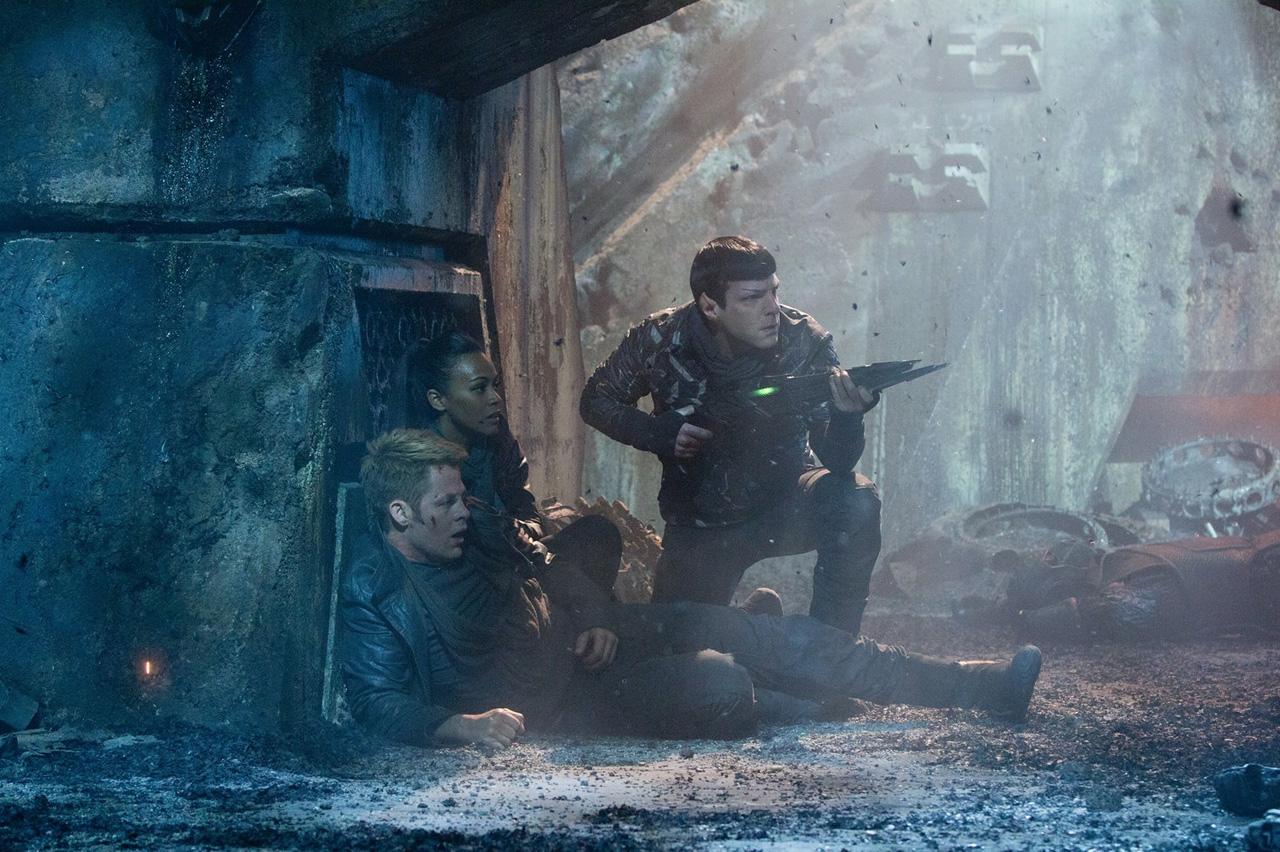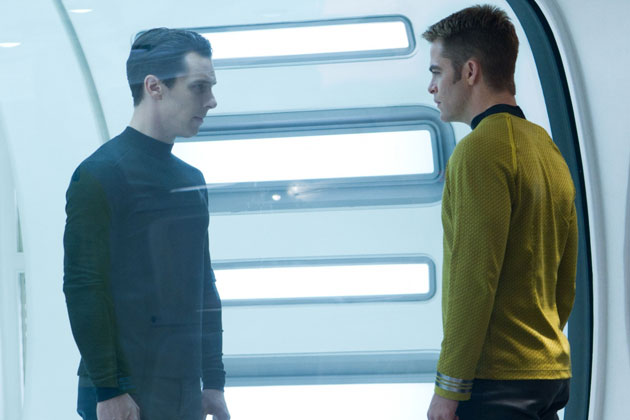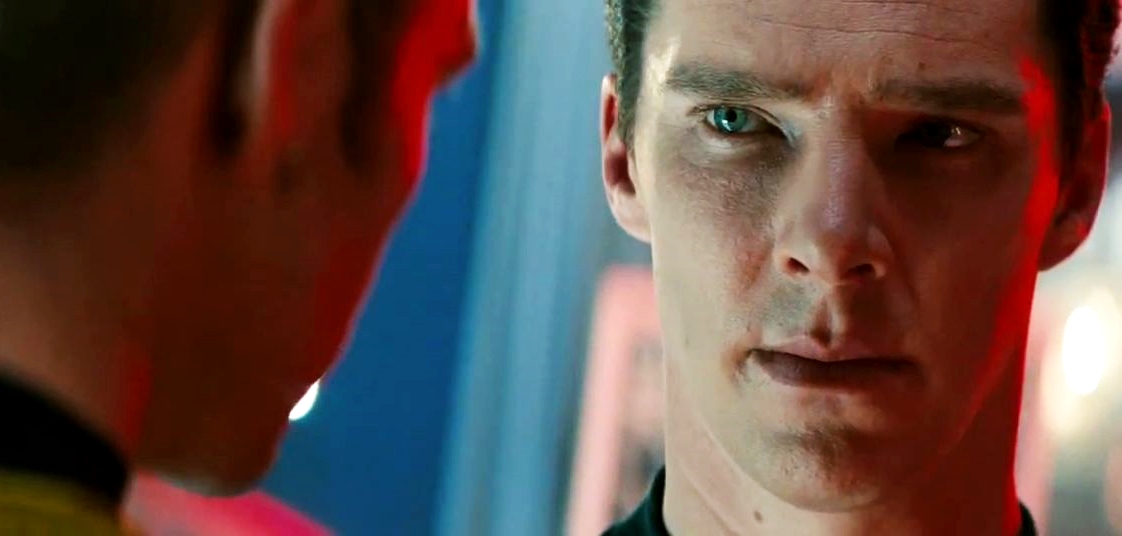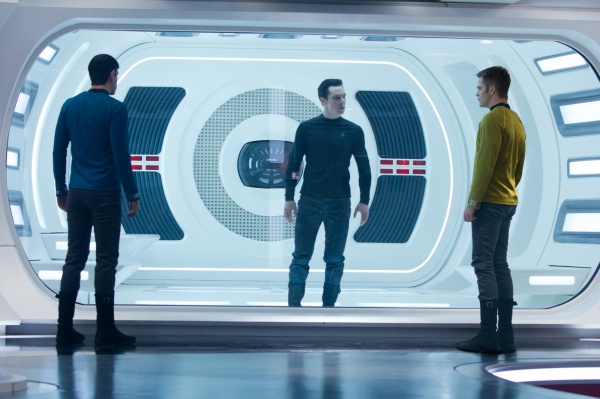|
In 1966 Gene Roddenberry created Star Trek as a TV series and
coincidentally this was the same year that director J.J. Abrams was
born. The show was pitched as a space Western in the vein of Wagon
Train, which was a Western mystery show set on the Frontier. Star
Trek converged with the start of the Vietnam War. Roddenberry had
already seen action as a fighter pilot in World War II. To counter
Vietnam, his version of Earth was a society without conflict and in
space there were galactic truces, race relations and a sense of unity
aboard the ship the Enterprise. As with any good Western, there was
moral code of ethics between men, no matter how pointy their ears might
have been. Roddenberry believed in a disciplined society that could be
unaffected by war or religion. Spock for example was said to be modelled
on a police Chief he knew when he was part of the LAPD.

After many years as a TV show and dozens of films, someone decided Star
Trek should be reinvented yet again and Abrams was hired to transform it
into a glossy action film. As a filmmaker J.J. Abrams is somewhat of an
enigma. One of his heroes growing up was Steven Spielberg. When he was a
boy he was hired to repair some old film footage for him. Spielberg
would later produce Abrams most personal film Super 8, a movie
that typifies the director's career. Part of the film is a loving
tribute to home movies and geek culture, while the other is a bombastic,
overblown blockbuster, short of any personal imprint. He's a slick
filmmaker, I enjoyed his TV show Alias until it became
ridiculous, but he struggles to find the balance his idol has between
action and character. Into Darkness is a better film than the
messy 2009 film though. The best scenes overcome the generic,
simplification of the action genre by retreating back towards the
essence of the original show: a morally ambiguous grey zone, where the
values of the characters and their races are tested. However, the
characters are still bound by a rigid story structure, where at least
ten elaborate set pieces take full precedence over the human and Vulcan
drama.

The most interesting aspects of the plot are when Spock (Zachary Quinto)
and Kirk (Chris Pine) butt heads over their different beliefs. Kirk is
tasked with tracking down a rogue agent named John Harrison (Benedict
Cumberbatch), who is now essentially a terrorist bomber, causing havoc
in London by using desperate people to do his bidding. This leaves a
chilling, lasting impression, particularly when the film adds a layer of
complexity, with Spock insisting that Harrison should be captured and
trialled first. He's at odds with the order of the mission and Kirk, who
wants revenge for the death of a colleague. Cumberbatch is frighteningly
good in the film, a massive improvement over Eric Bana's villain in the
first movie. The tension he brings through his menace, his arrogance but
also his ability to cast doubts in the minds of the protagonists about
who the baddies really are, is a magnetic quality that is hard to
prepare for prior to seeing the film. What a terrific find he's become
over the last few years.

However, by ingraining itself in the structure of an action film, a lot
of this ambiguity is undone. Whereas action and moral ethics fought and
overlapped persistently in The Dark Knight, Into Darkness'
rhythm is too discrete and foreseeable. The action is timed acutely to
follow a stretch of exposition, dividing itself between moments of
ideology and combat, and the emphasis on set pieces means the lines
between good and evil become transparent again and remove the crucial
shades of grey. Abrams also seems more interested in choreographing
lavish action sequences than exploring the personal side of the drama.
His imagination in the set pieces is limitless. He employs an array of
frenzied techniques, including rapid cutting, tilting cameras, overhead
shots and quick pans, to breeze through the action. Yet when the
characters stop to face one another and talk his direction has none of
the same flair or creativity. The actors sit or stand still, with the
camera perched on their shoulders for dull reverse angle shots that
don't heighten the tension.

Rarely do we ever see these characters in their downtime either. Without
any inner life they become ciphers for voicing conflicting moral ideas,
like instinct against logic or law and these conflicts are often
resolved within a scene of one another. After watching Star Trek II:
Wrath of Khan recently, which Into Darkness borrow from, it's
also fascinating that Kirk is viewed as an ageing man who has to start
thinking about death and his legacy. In this film he's more on par with
Tony Stark, able to bed two alien girls with tails at once. That
amplifies where they're aiming this film at, in spite of the
occasionally intriguing layering of the story. For a franchise that
prides itself on going where no man has gone before, the Enterprise is
starting to travel in circles.
Editor: For fans of the
previous movie, the film should be enjoyed in IMAX for that true
cinematic experience, especially the 3D which produces some excellent
depth! |